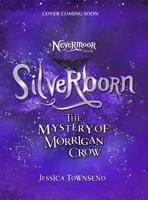Publisher's Synopsis
Excerpt from A Commentary on the Epistle to the Hebrews, Vol. 1
Greek, than is presented by our common English version. Of all the tasks which an interpreter performs, this is the most difficult. To make some kind of translation, is indeed a very easy thing; to follow on, in the tracks of some other interpreter, is equally easy. But to translate, so as to make an author, who has composed in an other language, altogether intelligible, and yet preserve all the shades, and colouring, and nice transitions, and (so far as may be) even the idioms themselves of the Original, is the very highest and most difficult work, which an interpreter is ever called to perform. A translation, faithfully presenting the original, is in itself a com mentary. It is the sum of all an interpreter's labours, exhibited in the briefest manner possible. Hence the little success, that has attended most of the versions which have been made of the Scrip tures. Their authors have either abridged or paraphrased the original; more commonly, the latter. Neither is admissible, in a translation truly faithful. Whether I have shunned the one and the other, must be left to the judgment of the reader. I much prefer the Saxon English, for a version of the Bible. I have accordingly chosen it, whenever I could, and have purposely avoided substituting Latinizing English in its room, unless a regard to the meaning of the original compelled me to do it. About the Publisher Forgotten Books publishes hundreds of thousands of rare and classic books. Find more at www.forgottenbooks.com This book is a reproduction of an important historical work. Forgotten Books uses state-of-the-art technology to digitally reconstruct the work, preserving the original format whilst repairing imperfections present in the aged copy. In rare cases, an imperfection in the original, such as a blemish or missing page, may be replicated in our edition. We do, however, repair the vast majority of imperfections successfully; any imperfections that remain are intentionally left to preserve the state of such historical works.





















